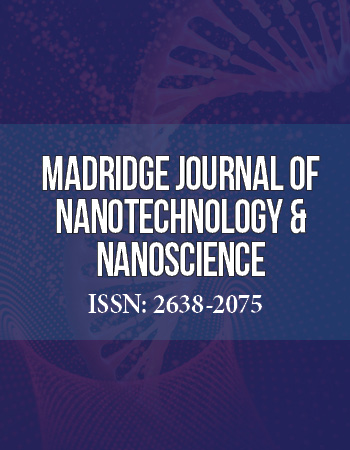International Nanotechnology Conference & Expo
April 04-06, 2016 | Baltimore, USA
Use of polymer-encapsulated polyphenol-richbioactive compounds as novel nano-carriers in dental drug delivery
1Discipline of Oral Sciences, Faculty of Dentistry, National University of Singapore, Singapore
2Institute of Materials Research and Engineering (IMRE), Singapore
Contemporary dentin bonding systems require a preliminary acid demineralization procedure that extract the minerals present in the dentin exposing the underlying collagen web and widening the dentinal tubule orifice eventually forming the hybrid layer (adhesive interface) and resin tags. Acid etching activates the host-derived Matrix metalloproteinases (MMPs), majority of which remain bound to the surrounding collagen and gradually degrades the fibrils over time. Preserving the integrity of collagen is very crucial for enhancing the longevity of resin-dentin bonds. Collagen-based materials are frequently stabilized by introducing cross-links in the fibrillar network to control the rate of biodegradation and preserve collagen properties over time. Proanthocyanidins-richpolyphenols are well-known collagen-crosslinkers and their ability to improve the mechanical stability of dentin collagen network has been proven earlier. In this work, we synthesize nano-encapsulatedbioactive polyphenolic compoundsin biocompatible and biodegradable polymers. Following purification, particles werecharacterized for size andmorphology. The polyphenol loading and corresponding entrapment efficiencies were determined by quantitative analyses. The inclusion of polyphenols in the formulations was confirmed by fourier transform infrared spectroscopy. The controlled and slow released of polyphenols from the polymer particles have been detected. Antibacterial and cytotoxicity assays were also performed in-vitro. Following characterization, best formulations among synthesized were chosen and utilized for treatment with acid-etched dentin. Particles were infiltrated inside demineralized human dentin substrates simulatingclinical conditions. Pattern of delivery was investigated microscopically and sustained release of polyphenols inside dentin was observed in-vitro making these carriers potential candidates for controlled release of collage cross-linkers.
Biography:
Balasankar Meera Priyadarshini (PhD candidate) since joining the National University of Singapore (NUS) as a PhD student, Meera has been working mainly with synthesis and characterization of nano- and micro-sizedpolymer-encapsulated MMPs inhibitors, and collagen cross-linkers for enhancing the longevity of resin-dentin adhesive interface as a novel mechanism for dentin-pulp complex and root canal applications. Meera acquired her MSc in Biomedical Engineering, NanyangTechinological University, Singapore (2009) and B.Tech in Biotechology, SRM University, India (2008).


